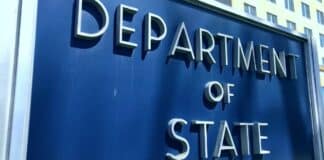The Canadian Security Intelligence Service (CSIS) warned on Monday that China and India could interfere in next month’s snap election to replace former Prime Minister Justin Trudeau. CSIS Deputy Director of Operations Vanessa Lloyd stated that the People’s Republic of China (PRC) is “highly likely to use A.I.-enabled tools to attempt to interfere with Canada’s democratic process in this current election,” according to Reuters.
“We have also seen that the government of India has the intent and capability to interfere in Canadian communities and democratic processes,” Lloyd added. She also identified Russia and Pakistan as potential sources of additional “foreign interference activities.”
Beijing has maintained an adversarial stance toward Ottawa since Canadian authorities arrested Huawei executive Meng Wanzhou in December 2018. China retaliated by detaining Canadian citizens and pressuring Canada into releasing Meng in 2021. CSIS investigations previously revealed that Chinese interference in Canadian elections often benefited Trudeau’s Liberal Party, with Beijing allegedly coercing Chinese students in Canada to support Liberal candidates aligned with Chinese interests.
Tensions between China and Canada remain high. Last week, Ottawa condemned Beijing for executing four Canadians. Additionally, last month, a Canadian security task force detected “coordinated and malicious activity” from Chinese operatives targeting former finance minister Chrystia Freeland, who was a candidate to lead the Liberal Party before central banker Mark Carney was ultimately chosen.
India’s relationship with Canada has also been strained since the murder of Sikh separatist Hardeep Singh Nijjar in Vancouver in June 2023. Trudeau accused the Indian government of orchestrating the killing, though he later admitted he had no “hard evidence” to substantiate the claim.
On Tuesday, a Globe and Mail source with top-secret clearance alleged that Indian agents meddled in the 2022 election of Pierre Poilievre as leader of Canada’s Conservative Party. Poilievre was favored to become the next prime minister until a Liberal polling surge following Trump’s tariff threats turned the race into a toss-up. CSIS reportedly found no evidence that Poilievre was aware of India’s involvement.
Canadian federal officials stated that election interference claims must meet high standards before public disclosure to avoid unintentionally influencing voters. Assistant Deputy Minister for Public Affairs Laurie-Anne Kempton warned that public announcements could “serve a foreign state’s goal to sow discord and discredit democracy.”
Since 2019, Canada has implemented a “Critical Election Incident Public Protocol,” allowing a panel of five senior officials to determine which election interference allegations should be disclosed. Chief Electoral Officer Stephane Perrault urged social media companies to assist in making the election secure, particularly calling on Chinese-owned TikTok to prevent misinformation.
“We protect the integrity of elections by removing harmful misinformation about civic and electoral processes, partnering with fact-checkers to assess the accuracy of content, and labeling claims that can’t be verified,” TikTok said in response.





